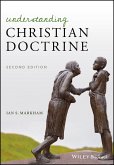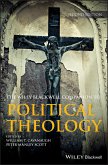Dieser Download kann aus rechtlichen Gründen nur mit Rechnungsadresse in A, B, BG, CY, CZ, D, DK, EW, E, FIN, F, GR, HR, H, IRL, I, LT, L, LR, M, NL, PL, P, R, S, SLO, SK ausgeliefert werden.
"Simply put, Betz's accomplishment is superb. Hecomprehensively introduces the entire span of Hamann's workin its theological and philosophical significance ... thoughmuch remains to be done in thinking with Hamann, Betz's workis a major accomplishment that deserves wide readership."--Lutheran Quarterly
"This is an important book for at least two reasons. Onthe one hand, it is a complete, reliable, and agreeably writtenintroduction to Johann Georg Hamann's life, work and world.On the other hand, it contributes substantially to the ongoingdiscussion in contemporary theology and philosophy about theseemingly ineradicable tension between modernity andChristianity." --Modern Theology
"After Enlightenment has much to offer those who arefamiliar with Hamann, as well as those who are not. The way Betzhandles Hamann's difficult writings and communicates histhought is a clear and precise manner is praiseworthy ... Thecomprehensiveness of the study is enhanced by the ease ofBetz's prose, offering a tremendous tool for understandingthe enigmatic yet fruitful 'Magus of the North'."--Journal of the Evangelical Theological Society
"[Betz] has produced the best and fullest survey of thelife and writings of Johann Georg Hamann in a generation, helpfullyincluding many passages from Hamann's letters andpublications and commenting intelligently on the style, theology,philosophy, and (to a lesser extent) historical context ofHamann's notoriously obscure oeuvre; second, he has writtenan intellectual history covering Hamann's relation to themajor figures of his time as well as his subsequent influence onand reception by philosophers and theologians down to our ownday." --Church History"John Betz' book is arguably the single best work on Hamannin the English speaking world and the most informed recent work onHamann in any language. Hamann is as profound as he is obscure;hence a comprehensive interpretation of Hamann in relationship tothe philosophers, theologians, and literati of his own time with aneye constantly upon our own intellectual context, is a rareachievement. I warmly commend After Enlightenment to a widereadership."
-Reinhard Huetter, Duke University









